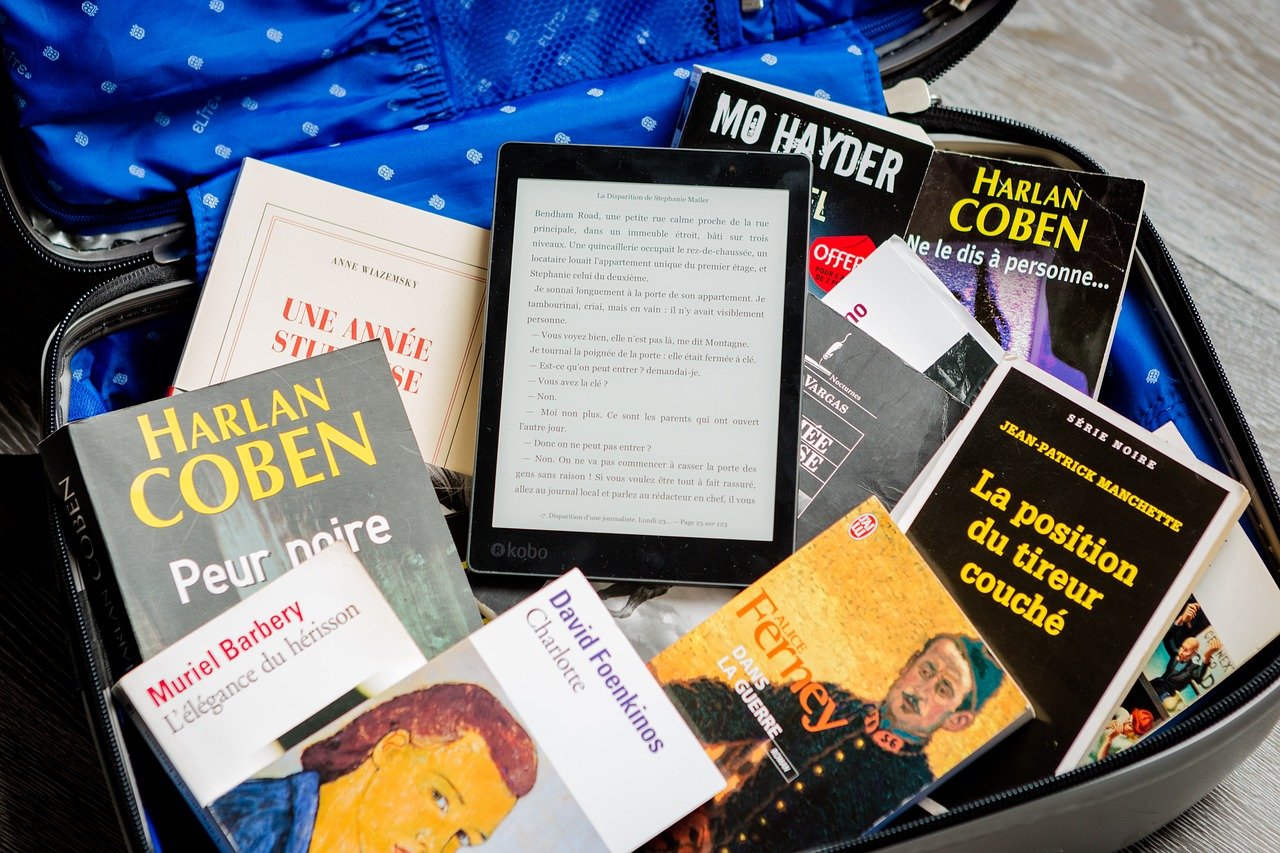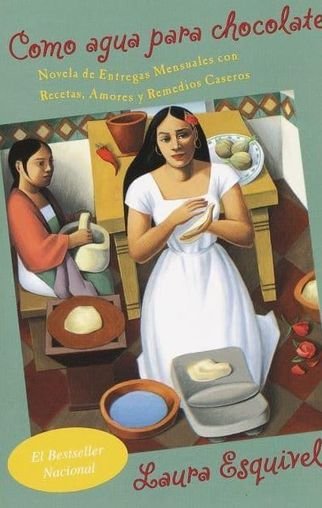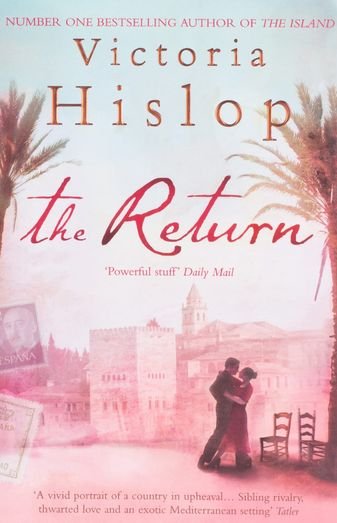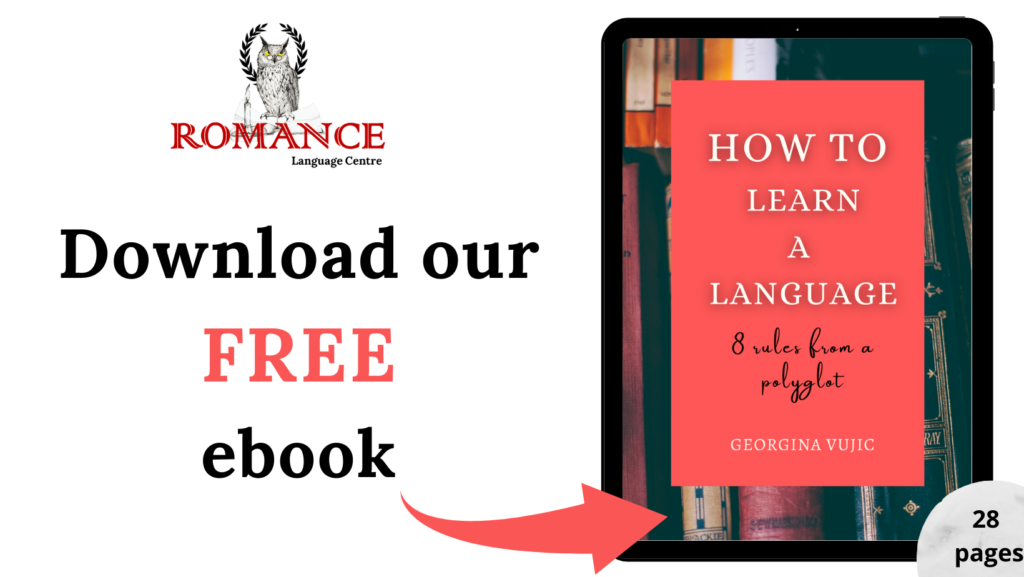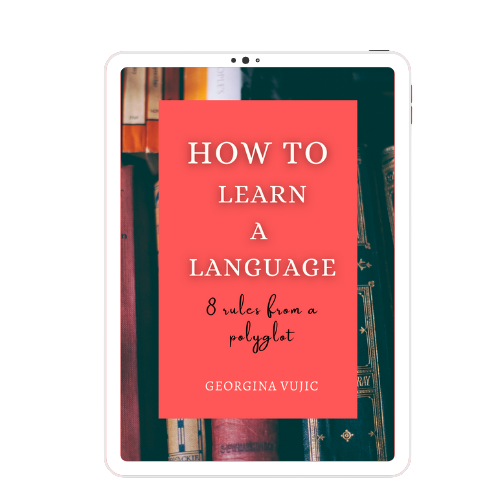Whether you’re only just embarking on a language learning journey or you’ve been on board for a little while, you’ve probably heard this many times; speak as much as possible, and do so since day one.
It’s probably the favourite language learning tip you’ll find out there, alongside consuming media, so much that other language activities – reading and writing – often get deprioritized.
Are you trying to improve your language skills mostly by speaking, but even when you talk your ears off, you feel like you’re just not making any progress whatsoever?
We are here to talk about the undeniable, but nowadays hugely ignored, importance of reading in foreign language acquisition.
To fully understand the benefits of reading, why it’s so important and how to best implement it, let’s take a look first at why we’re NOT doing it more – and what are the consequences?
WHY YOU SHOULD SPEAK LESS AND READ MORE – YES, WE SAID IT!

Do you know that feeling when you’re trying to tell a story, or express an opinion eloquently and articulately, but find yourself stumbling and grasping for words instead?
We feel your pain!
This happens even in our mother tongue, so whichever foreign language you are learning, know that this is a completely normal part of the process.
However, many learners never move past this stage or speak at a very rudimentary level for the rest of their lives, sometimes even when they live in the country of their target language.
Although speaking and writing are crucial in language learning and important to develop from the start, the fact is – one cannot develop language learning skills in isolation, and people can easily get accustomed to the mistakes they make if they do not learn with understanding.
In order for learners to produce output, they need to be given the correct input.
Languages are more than ever taught in reverse; we output (speak and write) more often than we input (listen and read).
X Output (speak and write) ——-> Input (listen and read)
√ Input (listen and read) ——-> Output (speak and write)
The reason why this doesn’t work in the long run is because we’re simply repeating what we already know (including our errors) over and over again, thus not expanding our vocabulary nor our understanding of the grammar.
We might be able to pick up on new things along the way, someone might correct us verbally, but the simple truth is that most people aren’t able to become fluent this way, and even if we stuck to this method, it would make our learning language journey excruciatingly long.
Chances are: you’ll get frustrated and quit, thinking this just isn’t for you.
So how can reading help you?
BENEFITS OF READING FOR LANGUAGE LEARNING IN ADULTS

Reading is one of, if not the best way to increase your vocabulary in both your native and target language.
Reading allows us to become more comfortable with the words through seeing them on paper which helps reinforce our memory of them. Unlike listening, reading lets us stop, think, and look up words in a dictionary, which consequently leaves more room to focus on individual concepts, therefore increasing the chances for absorption.
I’d like to call on this quote by Virginia Wolf:
‘Read a thousand books and your words will flow like a river’
As a Spanish literature graduate, I can testify to the truth of this; as important as both input and output are in fully acquiring a language, nothing has propelled my writing AND speaking skills quite so much as reading.
So let’s take a look at some of the advantages reading can give you:
- Reading solidifies your knowledge and makes you a confident speaker
By reading the same words and structure of sentences, you’re engraving it in your mind, which in turn makes you more confident when speaking.
As we know, repetition is crucial in learning a language – and research has shown that 65% of the population are visual learners, meaning they need to see information in order to retain it, compared to only 10% of what they hear – which makes verbal communication less effective in comparison.
Reading therefore becomes the solid pillars upon which our knowledge rests. - Reading makes you a more natural speaker
When we’re studying grammar, we’re taught very firm, unyielding formulas, especially in the beginning when we’re trying to avoid information overload.
Once you start reading more, though, you’ll notice the way native speakers combine these formulas in a way that makes it sound more relaxed – the natural flow of the language, meaning that you’ll gradually start sounding more like a native when speaking.
Let’s take Spanish as an example: Spanish is naturally a very versatile and creative language that rolls off the tongue quickly and Spaniards are always looking for ways to be even more economical about their language (in linguistics, a belief that fewer words lead to greater clarity.)
So if you want to sound more Spanish, read as much as you can, but also pay attention to the order of words in a sentence and its structure – this will help you understand how a native speaker would formulate their thoughts and impressions. - Reading expands your vocabulary
Out of the four learning activities that we’d mentioned (speaking, writing, reading, listening), nothing will expand your vocabulary nearly as much as reading.
If you’re at A1 and A2 level, chances are that you’re going to learn maybe even more words than someone who’s at B2 level – and that’s purely due to the fact that you simply don’t know that many words yet.
Think about how many words you’d need to narrate even the simplest action, like going to the store to get groceries.
Do you think you will learn more words by speaking with a native speaker using your hands and arms in a grocery store in Spain, or by reading a flyer with a grocery list and pictures paying attention to words and linking forms to images?
Reading is the quickest, most effective way to expand your vocabulary, especially if you’re a beginner. - Reading helps you understand the culture and the mindset of native speakers
We’ve already established that reading can make you sound more like a native speaker – but it can also make you think like one.
You acquire a little bit of that ability just by observing the way they express their ideas and feelings, but you deepen it by understanding the culture and history.
If you’re a beginner Spanish learner, for example, you will probably read a text about tapas culture at some point, you will also learn about villancicos (Christmas songs) and why red is a popular colour in Spain around New Year’s Eve.
If you’re reading at an advanced level, however, you will start noticing the volume of novels Spaniards have on the topic of Guerra Civil (Civil War) that ended 80 years ago, which will make you understand how present it still is in the mind of the nation, and how it shaped the Spain as we know it today.
If you want to take it even further – something that we at the Romance Language Centre will always make available to you – and learn about culture at an academic level, you can even read the famous book of essays El laberinto de la soledad, written by the Mexican Nobel prize writer Octavio Paz, and get the entire radiography of Mexican nation; who they are, what they are like, and why they are like that.
Through reading, we’re connecting to the language at its deepest level because we’re connecting directly with the people who are keeping it alive.
To get to that point of deep understanding of the language and culture, however, it’s not just about the mere act of reading – it’s about how we are reading as well.
4 TIPS ON HOW TO READ IN A FOREIGN LANGUAGE EFFECTIVELY

Here are some tips for effective reading in target language:
- Read material you have already read and enjoyed in your native language
I have read all my top favourite books in all the languages I have ever learned.
This is one the best things that will help you implicitly increase vocabulary and learn new grammatical constructions.
Having already read the story and enjoyed it, you are interested from the start, and you will find the material comprehensible.
Reading well-known texts will help you match new words and constructs to already familiar mental images from the story. - Start small
Do not be embarrassed to start by reading children’s books. They are great for beginners!
We use the book Cómo mola tu escoba (Room on the Broom), to teach one of our beginner’s Spanish class and it always makes for a very productive and memorable lesson.
- Read at your level for optimal progress
It can be challenging to find reading materials at your level, especially when you are at the beginning stages of your learning journey.
If you are a beginner, read social media posts, small and easy articles, short comics, or children’s books. Read what you find relatable.
If you are at an intermediate level, you could start reading books you have already read, biographies (they contain more common, generic vocabulary) and daily newspapers articles that will start exposing you to more colloquial terms and culture. This is when you could start watching movies with closed captioning.
At an advanced level is when you can read texts of choice and challenge yourself with classics where you will be exposed to archaic words and complex syntactic constructions. - Use post-it and don’t translate everything
Underline or mark any expressions or words that you find interesting and look them up in the dictionary after finishing the page or the chapter.
Prioritize following the story over translation.
In addition, do not try to translate every unknown word; it interrupts the reading, and it is time consuming.
Instead, focus on expressions in the dialogues, set phrases and idioms.
Translate the words that are used more times and only after you have finished reading.
CHECK OUT OUR LIBRARY AND START READING

At Romance Language Centre we are huge lovers of written words.
We are extremely passionate about inspiring a life-long love of books and knowledge in our students.
If we have managed to inspire you and educate you on the importance of reading when learning a foreign language, check out our library that we have compiled for our students to accompany our courses.
Find some of the best titles from Spanish and Portuguese fiction, grammar books, dictionaries, workbooks and much more!
Recent articles:
-

Why Legends Like El Duende Make Spanish Vocabulary Stick
-

The 5 Most Common Mistakes Spanish Learners Make (and How to Fix Them)
-

El Chupacabras: A Scary Story to Level Up Your Spanish

